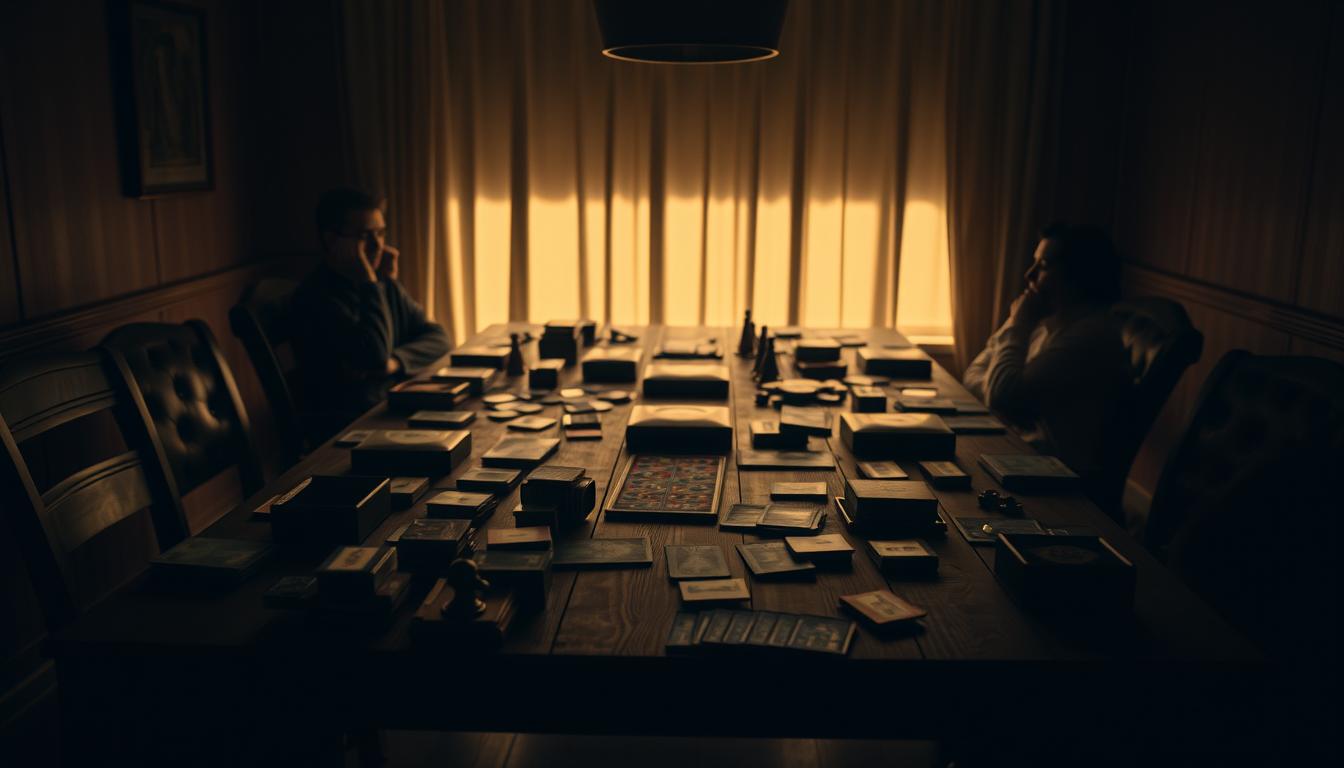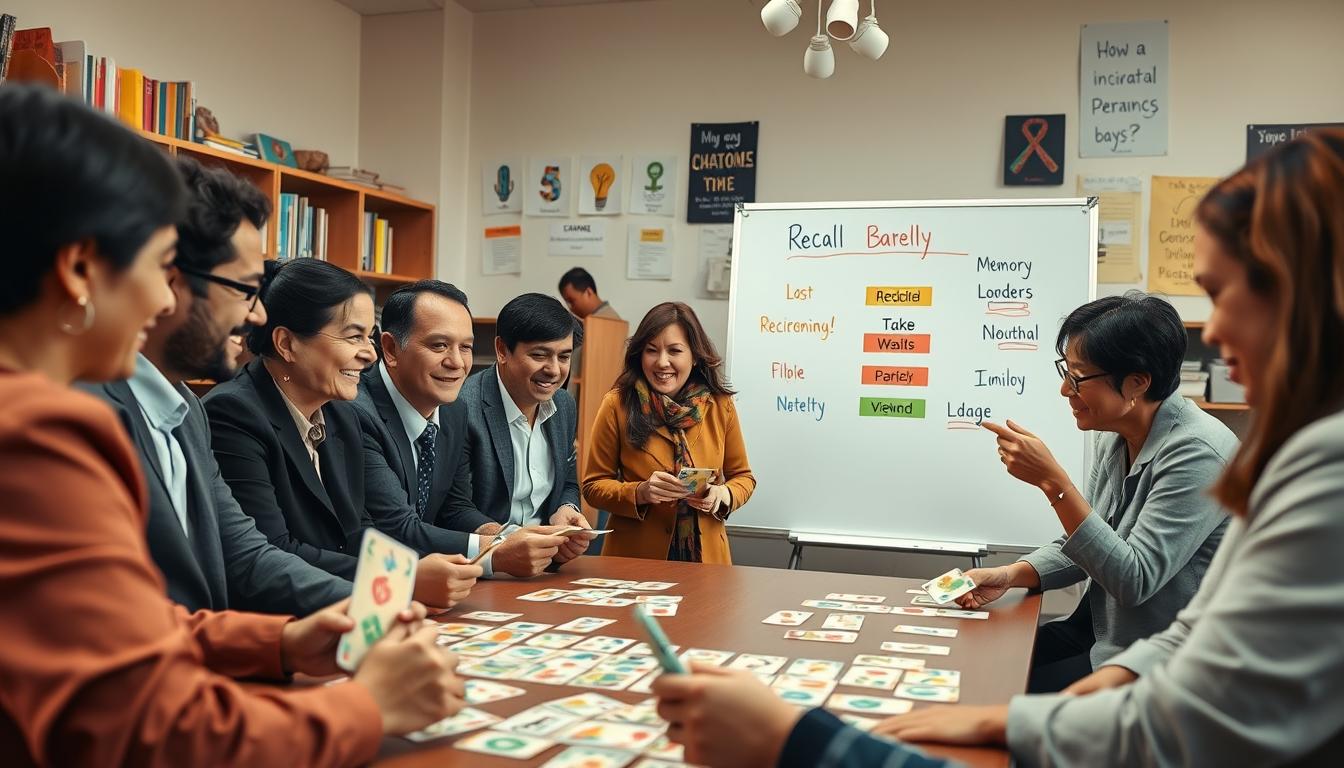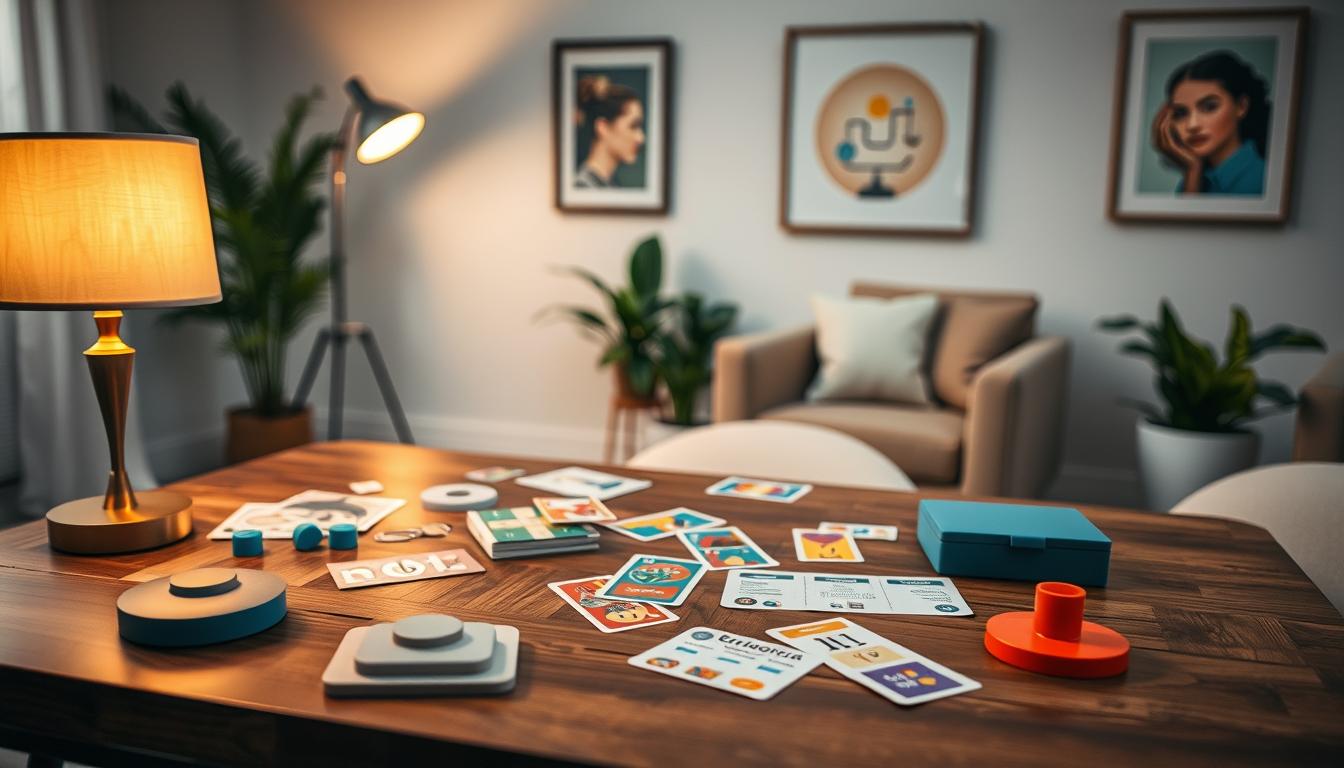Games to train fast decision-making in adults under stress or mental fatigue
Have you ever wondered why some people do well under pressure while others struggle? Making quick, smart decisions is key in our fast world, especially when we’re stressed or tired. Playing games that help with decision-making can really boost your skills.
These games are fun and help improve your thinking. They make you better at handling tough situations. Let’s explore how these games can change how you make decisions.
Introduction to Decision-Making Under Stress
Decision-making under stress is tough and can change the outcome of choices made when things get intense. Stress messes with our thinking, making it hard to make good decisions. When we’re tired, it’s even harder to weigh our options well.
As stress grows, our reaction times get slower, and mistakes become more likely. This makes it crucial to learn how to handle stress when making decisions. Building mental strength helps us deal with stress better and make smarter choices.

Understanding the Impact of Stress on Decision-Making
Stress can change how we make decisions. When we’re stressed, our brain works harder to process information. This can make our choices less thoughtful and more impulsive.
Research shows that stress can make it harder to focus and remember things. This is because our brain gets overwhelmed. As a result, we might not think as clearly or make better choices.
Stress can also make it harder to weigh our options. It adds pressure, making decisions more difficult. Finding ways to reduce stress, like playing games, can help improve our decision-making skills.

Why Engage in Games for Decision-Making Under Stress
Games designed for decision-making under stress are more than just fun. They are powerful tools for personal growth. By playing these games, you can boost your mental agility and cognitive function.
Enhancing Cognitive Function Through Play
Playing games activates different brain areas. This improves critical thinking and problem-solving. These games also make your brain more flexible, helping you handle new challenges better.
With better cognitive function, you can make smarter decisions when it counts.
Building Teamwork and Communication Skills
Team games are great for improving teamwork and communication. Players work together to reach goals, strengthening social and professional skills. The strategies learned in these games can help in real-life teamwork and collaboration.
Types of Games for Decision-Making
Playing different games can really help improve decision-making skills, especially when you’re stressed or tired. Online and offline games each have their own benefits. The speed of a game also matters, with slow games focusing on strategy and fast games on quick thinking.
Online vs. Offline Games
Online games are easy to access and offer a wide range of choices. They let players connect with others worldwide. Offline games, however, promote face-to-face interaction and teamwork.
Strategic vs. Fast-Paced Games
Strategic games need careful planning and thinking ahead. They’re great for learning long-term strategies. Fast-paced games, on the other hand, push players to make fast decisions. They help balance thinking and acting on instinct.
| Game Type | Examples | Main Benefits |
|---|---|---|
| Online Games | League of Legends, Fortnite | Global competition, diverse strategies |
| Offline Games | Settlers of Catan, Chess | Personal interaction, teamwork development |
| Strategic Games | Age of Empires, StarCraft | In-depth planning, critical thinking |
| Fast-Paced Games | Super Smash Bros., Rocket League | Quick reflexes, rapid decision-making |
Best Offline Games for Rapid Decision-Making
Offline games can boost your brain power, especially when you’re under pressure. They help improve quick thinking and teamwork. Playing these games can also make you better at handling different situations.
The Big Picture Challenge
This game is all about working together and planning ahead. Players join forces to reach a goal, needing to think fast and make smart choices. It’s a great way to build strong team bonds and show off individual talents.
Time Squared
This game is about managing time well. Players learn to use their time wisely, which helps them manage it better in real life. It’s a fun way to improve your decision-making skills for both work and personal life.
Delegation Skill Practice
This game helps you figure out how to share tasks with your team. It teaches the importance of good task management for success. Playing this game helps teams learn to make quick and smart decisions together.
Top Online Games for Improving Decision-Making Skills
Online games are great for improving decision-making skills. They offer fun ways to sharpen your mind, especially in tough situations. Games like these mix strategy, quick thinking, and time management. They’re perfect for boosting your decision-making abilities.
Overcooked! – Thrilling Time Management
In Overcooked!, you play as a chef in a busy kitchen. You must prepare and serve meals fast. This game is all about managing time well and making quick decisions.
As the kitchen gets more hectic, you need to think fast. It’s like real life, where you have to prioritize and act quickly.
Plague Inc. – Strategic Thinking Under Pressure
Plague Inc. is about creating and spreading a virus. You have to change your strategy as things evolve. It’s a game that makes you think deeply and plan ahead.
You face threats and need to adapt to survive. It teaches you to think critically, which is useful in many real-life situations.
Diner Dash – Service and Rapid Choices
Diner Dash takes you into the fast world of restaurant management. As a waitress, you have to serve customers quickly. It’s all about making fast decisions in a busy setting.
Handling multiple tables and orders at once is key. It teaches you to think and act fast, which is vital in high-pressure situations.
Cognitive Benefits of Playing Decision-Making Games
Playing decision-making games boosts your mental skills. Players get better at reacting quickly to new situations. This fast-paced gameplay sharpens your thinking and reaction time.
Improvement in Reaction Times
Studies show that playing these games makes you quicker to react. It’s because you’re always making fast decisions. This trains your brain to think and act fast.
With more practice, you get even better at responding quickly. This helps you in real life, making your reflexes sharper.
Boosting Memory and Focus
These games also improve your memory and focus. You need to concentrate and remember strategies during play. This strengthens your brain and helps you remember things better.
Being focused helps you do tasks better. It improves your performance at work and in your personal life.
Games for Stress Relief and Relaxation
Playing stress relief games is a fun way to unwind. These games help players focus on the present moment. This focus can be a great escape from daily life’s pressures.
Games that help you relax are great for your well-being. For example, flower arranging apps or puzzle games like Monument Valley. They help you relax and improve your thinking skills. Feeling accomplished can boost your mood and lower stress.
Mindfulness is key in many relaxation games. Playing these games can lower anxiety and help you connect with yourself. Games that involve meditation and gentle exploration can reduce stress. They help you take a break from daily worries.
Adding stress relief games to your routine can improve your life. They offer both fun and mental health benefits. This mix is essential for a balanced lifestyle.
How to Incorporate Decision-Making Games into Daily Routine
Adding decision-making games to your daily life can make you smarter and quicker under pressure. Make a plan to play games every day. Choose times like lunch or after work to make it a habit.
Short games during breaks can also help. They boost your quick thinking and decision-making. Playing with friends or coworkers improves teamwork and communication.
Keep games ready to play anytime. Mix solo and team games for better practice and fun. Playing regularly helps manage stress and improves decision-making.
Building a Supportive Environment for Game Playing
Creating a supportive environment for game playing can really help team-building. When companies focus on group activities through games, they build a culture of engagement. This setting helps employees connect over shared experiences, reducing stress and boosting mental health.
Games in team-building let people show their creative sides and solve problems in a fun way. It makes relationships stronger and helps everyone feel like they belong. This is key for a positive work atmosphere.
Having regular game sessions at work can be a great break from the usual routine. Playing games together improves communication and teamwork. It makes the workplace more fun and helps team members work better together every day.
Feedback and Learning from Game Experiences
Playing games is a chance to learn and grow. Players can reflect on their choices and strategies. This helps them improve and grow.
Talking about games with friends can offer new insights. It helps players see different ways to make decisions. This makes learning from experiences even more valuable.
Winning and losing are both important for learning. Instead of seeing losses as failures, they can teach us. This way, we can get better at games and in life.
Real-Life Applications of Decision-Making Skills
Playing games can improve your decision-making skills. These skills are very useful in real life, especially at work. They help you stay focused and make quick, smart choices.
Being able to make decisions fast and well is key to doing well at work. It helps you manage your time better and get more done. This is especially true when things get tough.
Workplace Productivity and Time Management
Using what you learn from games in your daily tasks can make you more productive. These skills help you stay strong and flexible at work. Here are some ways to use these skills:
- Rapid assessment: Quickly looking at different options helps you decide what to do first.
- Delegation: Knowing who’s good at what helps you share tasks better, making everyone more productive.
- Stress management: Making good decisions fast can make work less stressful, creating a better work place.
By practicing these skills, you can manage your time better. This leads to better results for your team and company.
Conclusion
Decision-making games do more than just entertain. They help improve our thinking and manage stress. These games give adults a chance to think fast and make good choices, skills we use every day.
Playing these games regularly makes our minds sharper. It helps us remember better and stay focused. This makes us quicker at making decisions and keeps our minds healthy.
Adding these games to our daily lives can really help us get better at making decisions. They make it fun to learn and grow. This way, we can handle tough situations with more confidence and skill.
FAQ
How do games improve decision-making skills?
Games make decision-making better by offering fun ways to think critically. They help solve problems and adapt to new situations. Players get better at making quick, smart choices, which helps in real life.
What types of games are most effective for reducing stress?
Games that calm the mind are best for stress relief. Think of games that help you relax and focus. These games are great for unwinding and keeping your mind sharp.
Can playing decision-making games actually help in stressful workplace situations?
Yes, playing these games can boost your brain power. This means you’ll work better, manage time well, and handle stress at work better.
How often should I play decision-making games to see benefits?
Playing games a few hours a week or during breaks is good. It’s all about being consistent. This way, you’ll see your brain skills improve over time.
Are online games as effective as offline games for decision-making?
Online and offline games have their own perks. Online games are easy to access and offer lots of choices. Offline games help you connect with others face-to-face. It’s up to you to decide what’s best for your skills.
What are some key cognitive benefits of engaging with decision-making games?
Playing these games can make you quicker, better at remembering things, and more focused. These skills are key for making good decisions, especially when it’s urgent.
How can I create a supportive environment for playing games?
Make a space where teamwork and fun games are valued. This can strengthen bonds and reduce stress. Adding games to work activities can bring everyone together and create shared memories.
What should I focus on while reflecting on game experiences?
Think about how you made decisions during the game. Talk about it with friends and see what you can learn. This helps you grow and get better at making choices.
Can team-based games improve cooperation skills?
Yes! Games that require teamwork improve how we communicate and work together. They help us strategize and reach goals as a team, which is important in life and work.














